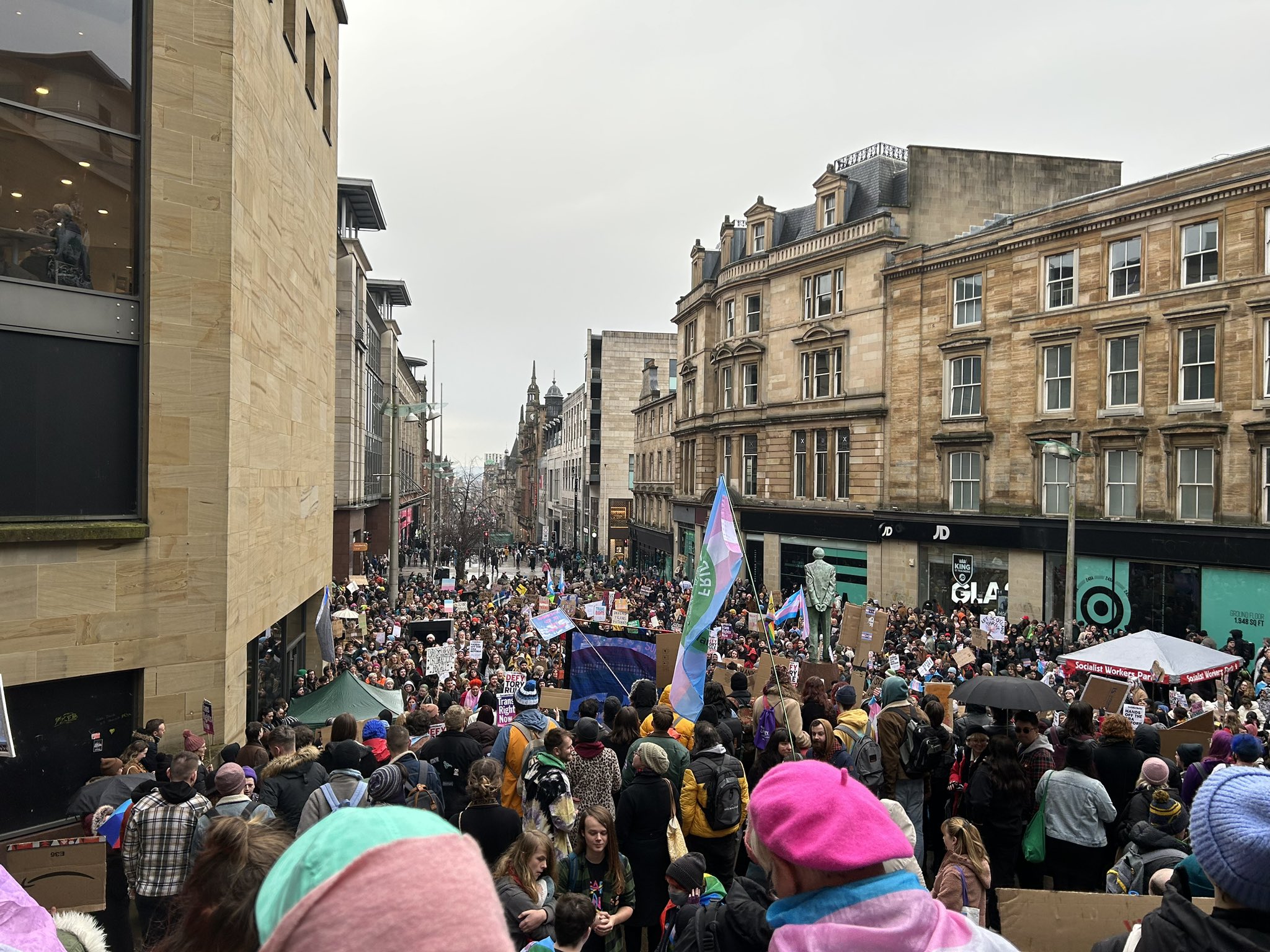On the 20th of December, I sat down in the Scottish Parliament viewing gallery watching Scottish democracy at work. Almost every MSP sat in the chamber preparing to debate one of the most disputed issues of the last five years – reforms to the Gender Recognition Act.
I sat alongside other trans people for hours across three days, watching our right to existence be debated, discussions about how much of a threat we were to a normal society and how we can’t be trusted to make decisions about our gender. However, on the final day, it was clear that these speeches represented a minority of Parliament.
Eventually, the Bill came to fruition and was passed by a two-thirds majority after many impassioned speeches by MSPs about human rights and dignity. We won. After a campaign spanning two elections and having the support of every single party except the Tories, we won.
However, in mid-January, the news broke that Rishi Sunak would be blocking this Bill from receiving royal assent and becoming law. After a long and hard-fought campaign, the UK Government used the veto power, essentially bypassing Scottish democracy because they (allegedly) believed this would impact women’s rights in the Equality Act 2010.
Naturally, this was received differently by trans people across the UK, but I laughed. The situation was so absurd; who cares so much about 0.5% of the population that they’re willing to override Scottish democracy to prevent a slight administrative improvement to our lives? This amusement turned to anger, but not the type of anger that paralyses you, the type that gets you out to three protests in the space of four days and I wasn’t alone in these feelings.
In Edinburgh, I joined hundreds of people protesting, and the atmosphere matched my own feelings. It wasn’t so much a sense of fear or a general protest for improvement; it was a defiant protest delivering the message that the UK Government could absolutely, for lack of better words, “get tae fuck”. A broad range of people attended, contrasting with the days of small crowds of primarily trans people. There were trade unionists, student unions, MSPs from every party except the Tories and even a government minister all united in defence of trans rights and Scottish democracy.
🏳️⚧️Trans Rights are Human Rights.
Green MSPs joined the rally to protect Trans Rights and defend our democracy in Edinburgh this afternoon.
✍️Sign our petition to stop Section 35: https://t.co/aluEXHDHaQ pic.twitter.com/y6t8lHNN7K
— Scottish Greens (@scottishgreens) January 19, 2023
At this protest, speeches were given about the strength of the trans community and our supporters; it was cathartic and powerful. Politicians gave impassioned speeches of support and about how outraged they were. One speech that stuck with me described why this clash between two governments differs from before.
In the past, the UK Government has filed multiple Section 33s, in which they can refer a piece of legislation directly to the courts for scrutiny. In this case, they used Section 35, which outright vetoes the legislation. Why? Why would they not refer it to the courts if they were confident in their legal argument? The answer is likely exactly how it sounds: they know they will lose. Because this isn’t about overstepping the powers devolved to Scotland, it’s about asserting power and preventing trans people from gaining dignity in our deeply transphobic society.
In Glasgow, the crowd almost doubled in size; the sheer number of people almost entirely blocked the street. Again, trade unionists showed up, parliamentarians and more. The anger was far more potent than I felt when I attended a protest in London earlier in the week.
Great turnout in Glasgow for today’s Trans Rights/GRR protest. Would estimate there’s at least a couple of thousand in attendance, which equates to approximately 200 TERF rallies. pic.twitter.com/VMdddkA6Or
— Fancy Brenda 🏳️🌈🏳️⚧️ (they/them) (@SpillerOfTea) January 21, 2023
The issue spreads further for us; it’s not simply about trans rights but about Westminster’s ability to override the democratic will of the Scottish Parliament. It starkly shows who is on which side. Are you on the side of trans rights and, therefore, democracy, or do you stand with those willing to descend into fascism to prevent even an incremental improvement to trans people’s quality of life?
For Scots, this is the intersection of two issues. In England, I sensed a general anger at a government that is consistently transphobic. In Scotland, it is at least equally about Westminster’s abhorrent decision to override Scottish democracy. This is a fight for dignity and self-determination in which trans people are caught in the crossfire.
From my perspective, I can see a new age in the trans “debate”. We will not have Scottish democracy overridden by an unelected Prime Minister. This moral panic has morphed into something that now extends far beyond trans people. It has become about bodily autonomy, personal freedom, and self-determination; which Rishi Sunak is willing to go to extreme lengths to prevent.
One group wants to eradicate trans people and bring society back to oppressive gender roles based on biological essentialism. The other wants to exist safely without discrimination. It is clear that the line is drawn between fascism and trans rights, with groups previously separated from the situation now taking a stand with us.
As this spreads further, which side will you stand on?











